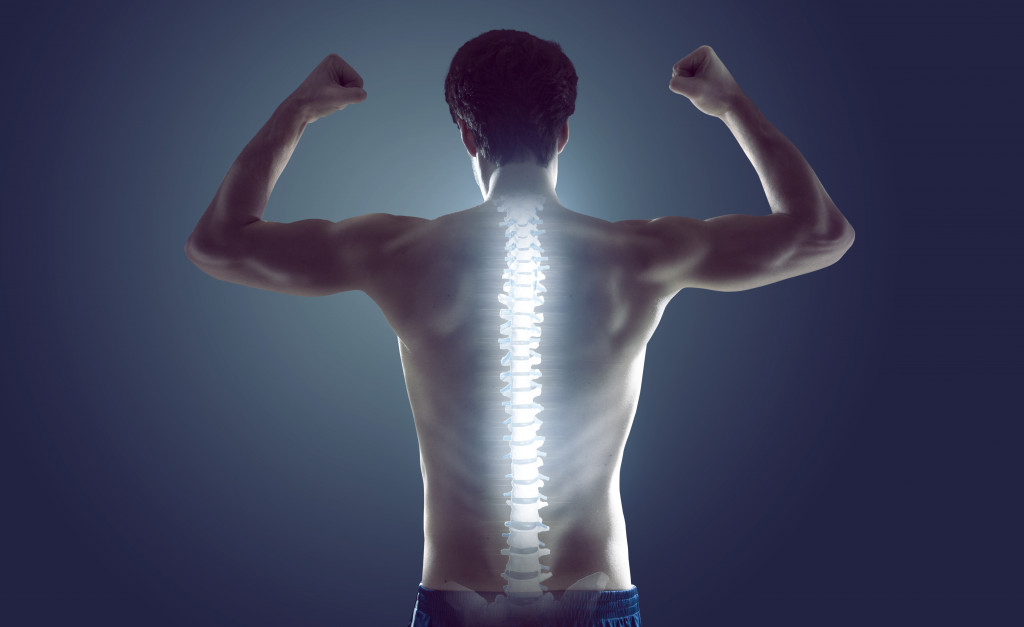Maintaining a healthy bone density is one of the keys to a productive life. When your bones lose density, they become weak and brittle, a condition called osteoporosis. In turn, you become more prone to fractures in the spine, wrist, and other joints.
Wear and tear on the back could also cause adult scoliosis. Fortunately, several treatments can help with bone weakness-related conditions, including Schroth scoliosis treatment, physical therapy, and other holistic interventions.
But with any condition, prevention is still better than cure. Keep your bones from thinning and improve their strength with the following tips:
1. Eat plenty of vegetables
Vegetables and fruits are packed with vitamin C, an essential ingredient to the production of bone-forming cells. Vitamin C also has antioxidant effects that prevent bone cell damage. Additionally, eating vegetables regularly can boost the mineral density of your bones, which could help prevent conditions like osteoporosis and osteopenia (low bone mass). Older women, in particular, can benefit from eating plenty of vegetables as it helps decrease bone turnover, a process where bones break down to form new ones. In children, a diet high in vegetables could also help in creating healthy and strong bones.
2. Consume enough protein

Protein is essential for healthy bones, given that nearly 50 percent of bone is made of protein. What’s more, a high protein intake can help increase calcium absorption, thus reducing bone formation and breakdown rates. For this reason, you must consume enough protein daily to keep your bones strong.
People should consume up to 100 grams of protein daily. However, it works best when paired with adequate calcium intake and plenty of plant foods. Postmenopausal women can also lower their risk of fractures and issues in the hip, arm, legs, and spine by consuming higher amounts of protein.
3. Eat high-calcium food throughout the day
Calcium is the main mineral found in bones, making it an essential requirement for optimal bone health. It must be consumed every day in the form of food or supplements to maintain bone health. Teens would typically need 1,300 mg of calcium per day, while older women would need about 1,200 mg. But for most people, 1,000 mg is the ideal amount.
However, it would still be best to consult with your doctor. It’s also important that you spread your calcium intake throughout the day as you can only absorb a certain amount at a time. While calcium supplements can be an option to fight calcium deficiency, it’s still best to get this mineral from foods.
4. Perform weight training or weight-bearing exercises

The benefits of regular exercise can be far-reaching. But if your goal is to build bone strength and bone mass, you’d want to include weight training and weight-bearing exercises in your routine. For children and young adults, high-impact exercises help facilitate the formation of new bone. For older adults, it can be beneficial for preventing bone density and mineral loss. These exercises have also been shown to reduce bone turnover, a common problem among older men and women.
5. Avoid low-calorie diets
Fad diets centered around reducing calorie intake can be bad for your health and your bones. Dropping calories too low could slow down your metabolism and reduce your muscle mass, which can harm your bones. You must consume the recommended amount of calories for your age, gender, height, and weight. Your diet should also include a balance of protein and foods high in vitamins and minerals like zinc, magnesium, omega-3 fatty acids, vitamin B, and vitamin K. All of these support bone health and reduce your risk of bone-related issues.
6. Maintain a healthy weight
Additional weight puts pressure on your bones and joints, increasing your risk of weakened bones and fractures. To prevent this, it’s important to maintain a healthy weight and body composition. Body mass index (BMI) calculators let you check the ideal weight you should maintain based on your height and gender. Similarly, being underweight also increases your risk of osteoporosis and osteopenia, particularly among postmenopausal women.
7. Consider taking collagen pills

Collagen pills are a popular option for people with joint problems, but they can also benefit people at high risk of bone thinning and osteoporosis. While the research on this topic isn’t extensive yet, there’s considerable evidence that collagen helps with bone health, especially for postmenopausal women.
Having strong bones is a key ingredient for enjoying life and performing all kinds of activities and tasks efficiently. Fight bone-related conditions by taking these preventive and proactive measures.

